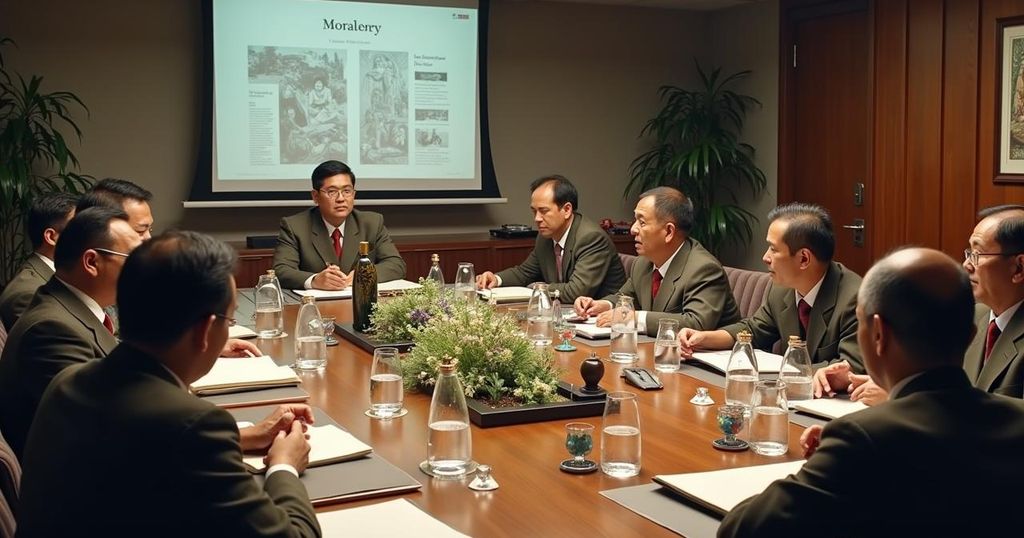International People’s Tribunal Finds Indonesia Liable for 1965-1966 Atrocities
The International People’s Tribunal has concluded that Indonesia is responsible for crimes against humanity during the 1965-1966 mass killings, which targeted suspected communists, resulting in up to a million deaths. The tribunal called for apologies, legal accountability for perpetrators, and rehabilitation for survivors of the purge.
On July 20, the International People’s Tribunal in The Hague declared that Indonesia bears responsibility for crimes against humanity related to the mass killings that occurred between 1965 and 1966, with estimates of the fatalities ranging from 500,000 to one million individuals suspected of being communists. This military-led purge aimed to target members of the Indonesian Communist Party (PKI) and their sympathizers and facilitated the ascendancy of Suharto’s New Order regime. The tribunal’s verdict indicated that Indonesia is liable for serious violations of human rights that occurred during this period, specifically identifying genocide against the PKI, its supporters, and affiliates, including adherents to former President Soekarno and members of the Indonesian National Party (PNI). Presiding judge Zak Yacoob emphasized, “The State of Indonesia is responsible for and guilty of crimes against humanity consequent upon the commission and perpetration, particularly by the military of that state through its chain of command, of the inhumane acts.” The tribunal reported various human rights violations committed during this time, including mass killings, torture, forced disappearances, and sexual violence. It was stated that these acts constituted a systematic attack against the PKI and its supporters, initiated by a campaign of false propaganda. Judge Yacoob clarified that although some crimes appeared to result from local, spontaneous actions, this did not absolve the state of its duty to prevent such occurrences or to punish those responsible. As part of its recommendations, the tribunal urged the Indonesian government to issue apologies to victims and survivors for the historical injustices inflicted during the 1965 events. They called for investigations and prosecutions of those implicated in the crimes, along with compensation and rehabilitation for the victims. Furthermore, the tribunal urged swift action from the Attorney General, advocating for a follow-up on a 2012 report from the National Commission of Human Rights recommending inquiries into human rights violations associated with the Communist purge. Additionally, the tribunal called for measures to protect the rights of surviving victims in accordance with international and national laws, thereby aiming to prevent any future persecution of these individuals.
The mass killings in Indonesia from 1965 to 1966 were a series of politically motivated purges that targeted the Indonesian Communist Party (PKI) and its sympathizers following an attempted coup. This violent campaign was orchestrated primarily by the military and led to the deaths of a significant number of suspected communists. The aftermath of these events significantly influenced the political landscape in Indonesia, paving the way for Suharto’s long-standing dictatorial regime. Despite the historical magnitude of these atrocities, comprehensive accountability and reconciliation efforts remained elusive for decades, culminating in the recent attention by international tribunals.
In summary, the International People’s Tribunal has formally recognized Indonesia’s state responsibility for the atrocities committed during the 1965-1966 mass killings, emphasizing the need for accountability, reparations, and a formal apology to the victims and survivors. The tribunal’s findings call for renewed initiatives to address these historical injustices and ensure the protection of human rights for affected individuals. The recommendations also highlight the necessity for continued efforts to investigate past violations and support the affected communities in their quest for justice.
Original Source: jakartaglobe.id




Post Comment